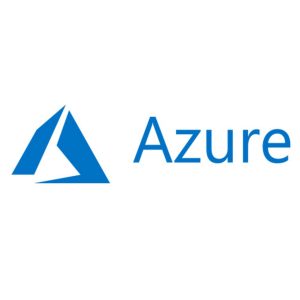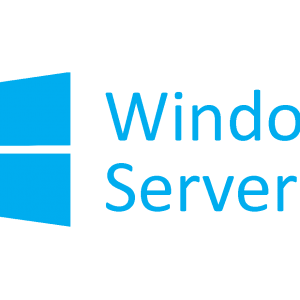Description
About this On Demand Course
The Microsoft on-demand product is an integrated on-line training experience that includes video, labs, exercises, text and knowledge checks. Attendees experience all of this through an on-demand course player.
What’s included?
- Access to the official Microsoft Video on Demand Course for 90 days from the point of first access, allowing you to start and stop when you need to.
- Lab access for 3 months from start of access.
- Digital edition of the Microsoft Official Curriculum (DMOC) manual for reference throughout your course. All DMOC come with fresh editions so your courseware will always be up to date.
- MCT Support via our Microsoft Training Support Yammer Group (you will be invited to the group after registration)
The content is based on the same official courseware we use in our instructor-led training, and videos feature engaging experts hand-selected by Microsoft. Unlike other on-demand offerings that offer simulated labs, MOC On-Demand gives you a live, real-time environment for hands-on training.
About this Course
This course describes how to implement a data warehouse platform to support a BI solution. Students will learn how to create a data warehouse with Microsoft® SQL Server® 2014, implement ETL with SQL Server Integration Services, and validate and cleanse data with SQL Server Data Quality Services and SQL Server Master Data Services.
Note: This course is designed for customers who are interested in learning SQL Server 2012 or SQL Server 2014. It covers the new features in SQL Server 2014, but also the important capabilities across the SQL Server data platform.
Audience Profile
This course is intended for database professionals who need to create and support a data warehousing solution. Primary responsibilities include:
- Implementing a data warehouse.
- Developing SSIS packages for data extraction, transformation, and loading.
- Enforcing data integrity by using Master Data Services.
- Cleansing data by using Data Quality Services
At Course Completion
After completing this course, students will be able to:
- Describe data warehouse concepts and architecture considerations.
- Select an appropriate hardware platform for a data warehouse.
- Design and implement a data warehouse.
- Implement Data Flow in an SSIS Package.
- Implement Control Flow in an SSIS Package.
- Debug and Troubleshoot SSIS packages.
- Implement an ETL solution that supports incremental data extraction.
- Implement an ETL solution that supports incremental data loading.
- Implement data cleansing by using Microsoft Data Quality Services.
- Implement Master Data Services to enforce data integrity.
- Extend SSIS with custom scripts and components.
- Deploy and Configure SSIS packages.
- Describe how BI solutions can consume data from the data warehouse.
Course Outline
Module 1: Introduction to Data Warehousing
This module provides an introduction to the key components of a data warehousing solution and the high-level considerations you must take into account when you embark on a data warehousing project.
Lessons
- Overview of Data Warehousing
- Considerations for a Data Warehouse Solution
Lab: Exploring a Data Warehousing Solution
Module 2: Data Warehouse Hardware Considerations
This module discusses considerations for selecting hardware and distributing SQL Server facilities across servers.
Lessons
- Considerations for building a Data Warehouse
- Data Warehouse Reference Architectures and Appliances
Lab: Planning Data Warehouse Infrastructure
Module 3: Designing and Implementing a Data Warehouse
This module describes the key considerations for the logical design of a data warehouse, and then discusses best practices for its physical implementation.
Lessons
- Logical Design for a Data Warehouse
- Physical design for a data warehouse
Lab: Implementing a Data Warehouse Schema
Module 4: Creating an ETL Solution with SSIS
This module discusses considerations for implementing an ETL process, and then focuses on Microsoft SQL Server Integration Services (SSIS) as a platform for building ETL solutions.
Lessons
- Introduction to ETL with SSIS
- Exploring Data Sources
- Implementing Data Flow
Lab: Implementing Data Flow in an SSIS Package
Module 5: Implementing Control Flow in an SSIS Package
This module describes how to implement ETL solutions that combine multiple tasks and workflow logic.
Lessons
- Introduction to Control Flow
- Creating Dynamic Packages
- Using Containers
- Managing Consistency
Lab: Implementing Control Flow in an SSIS Package
Lab: Using Transactions and Checkpoints
Module 6: Debugging and Troubleshooting SSIS Packages
This module describes how you can debug packages to find the cause of errors that occur during execution. It then discusses the logging functionality built into SSIS that you can use to log events for troubleshooting purposes. Finally, the module describes common approaches for handling errors in control flow and data flow.
Lessons
- Debugging an SSIS Package
- Logging SSIS Package Events
- Handling Errors in an SSIS Package
Lab: Debugging and Troubleshooting an SSIS Package
Module 7: Implementing an Incremental ETL Process
This module describes the techniques you can use to implement an incremental data warehouse refresh process.
Lessons
- Introduction to Incremental ETL
- Extracting Modified Data
- Loading Modified data
Lab: Extracting Modified Data
Lab: Loading Incremental Changes
Module 8: Enforcing Data Quality
This module introduces Microsoft SQL Server Data Quality Services (DQS), and describes how you can use it to cleanse and deduplicate data.
Lessons
Introduction to Data Quality
Using Data Quality Services to Cleanse Data
Using Data Quality Services to Match data
Lab: Cleansing Data
Lab: De-duplicating data
Module 9: Using Master Data Services
Master Data Services provides a way for organizations to standardize data and improve the quality, consistency, and reliability of the data that guides key business decisions. This module introduces Master Data Services and explains the benefits of using it.
Lessons
- Master Data Services Concepts
- Implementing a Master Data Services Model
- Managing Master Data
- Creating a Master Data Hub
Lab: Implementing Master Data Services
Module 10: Extending SQL Server Integration Services
This module describes the techniques you can use to extend SSIS. The module is not designed to be a comprehensive guide to developing custom SSIS solutions, but to provide an awareness of the fundamental steps required to use custom components and scripts in an ETL process that is based on SSIS.
Lessons
- Using Scripts in SSIS
- Using Custom Components in SSIS
Lab: Using Custom Components and Scripts
Module 11: Deploying and Configuring SSIS Packages
In this module, students will learn how to deploy packages and their dependencies to a server, and how to manage and monitor the execution of deployed packages.
Lessons
- Overview of SSIS Deployment
- Deploying SSIS Projects
- Planning SSIS Package Execution
Lab: Deploying and Configuring SSIS Packages
Module 12: Consuming Data in a Data Warehouse
This module introduces business intelligence (BI) solutions and describes how you can use a data warehouse as the basis for enterprise and self-service BI.
Lessons
- Introduction to Business Intelligence
- Introduction to Reporting
- An Introduction to Data Analysis
Lab: Using Business Intelligence Tools



